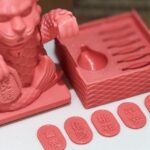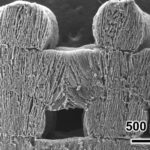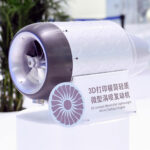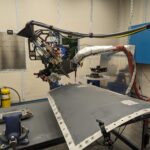A University of Stuttgart spin-off company is developing compact quantum sensors that utilize 3D-printed magnets for measuring food shelf life. The startup, SpinMagIC, has received two years of funding from Germany’s EXIST research transfer program to bring their technology to market. The device combines a microchip-based sensor with a lightweight 3D-printed magnet weighing just 40 grams.
The technology employs electron spin resonance (ESR) to detect free radicals in food products, offering an alternative to traditional ESR equipment that typically weighs over a ton and costs hundreds of thousands of euros. The system’s core component is a microchip measuring less than one square millimeter, integrated with high-frequency circuits. The 3D-printed magnet provides the necessary magnetic field while maintaining precise measurement capabilities.

The device can analyze samples through direct immersion or via a micropump system that delivers liquid to the sensor chip. Results are displayed immediately, allowing for quick assessment of product quality. The system’s magnetic components are specifically designed to maintain field homogeneity despite their reduced size and weight.
The development team includes researchers from Stuttgart and Berlin with diverse expertise in engineering, physics, and business. Team member Anh Chu describes the device as “extremely small, incredibly affordable, and with very high measurement accuracy.” The project is currently funded by the Federal Ministry of Economics and Climate Protection (BMWK).
Beyond food quality testing, the technology shows potential for various applications including battery condition monitoring, environmental contamination detection, and pharmaceutical testing. While the current version is palm-sized, the team aims to further reduce its dimensions in the future. SpinMagIC expects to secure pilot customers within the next two years.
Source: uni-stuttgart.de










